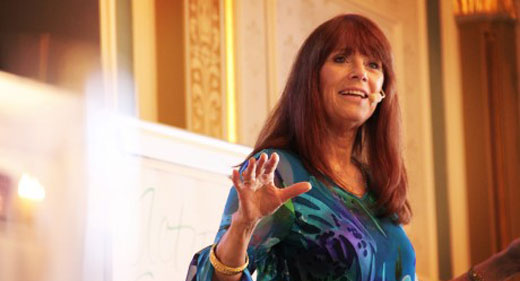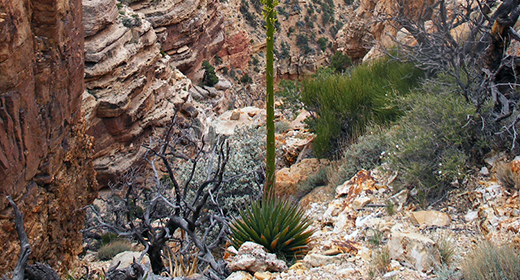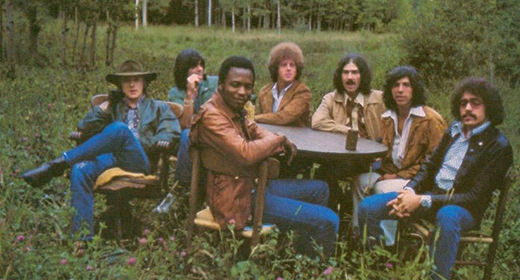by Sri Sri Ravi Shankar: Development is imperative, but a short-sighted approach is often the cause of great harm. Sustainable development is that which keeps in mind the long-term effects and benefits of any program. What you develop today should not become a noose around your neck tomorrow. For instance, concrete jungles mushrooming in cramped spaces with no regard for civic infrastructure inevitably give rise to negative consequences – air pollution, water shortages, housing and labour problems, and escalating costs of living.
What you develop today should not become a noose around your neck tomorrow. For instance, concrete jungles mushrooming in cramped spaces with no regard for civic infrastructure inevitably give rise to negative consequences – air pollution, water shortages, housing and labour problems, and escalating costs of living.
Short-sighted development is a disaster. Ravaging natural resources without a long-term vision will destroy the ecology, which is the very source of life. The purpose of development should be to support and sustain life. With the bigger picture in mind, all development plans will factor in the ecology, sociology and psychology. Then the very process of development becomes a conscious endeavour to preserve the planet and its resources. The health of our planet is of utmost importance.
Environment consciousness is inbuilt in the human system. Throughout history, Nature (or prakriti) has always been adored in India; mountains, rivers, the sun, the moon, the trees have been revered. In fact, ancient cultures all over the world have exhibited a deep reverence for Nature. For them, God was not in temples or churches, but was inherent in Nature, in the five elements (earth, water, fire, air and space), the directions, the sun, the moon. Hinduism, the most ancient religion, adores Nature through the five elements and has even defined spirituality as tatvabodha or understanding the principles of Nature. It’s only when we start moving away from Nature that we start polluting Nature. Today there is a pressing need to revive the ancient practice of honouring and conserving Nature.
Many are of the view that damage to ecology is an inevitable by-product of technological progress. But that is not necessarily so; actually, a sustainable growth is assured only if the ecology is protected. Science and technology should not be regarded as anti-environment; rather, we need to find ways of maintaining harmony in environment while progressing in science and technology. This is the biggest challenge of this century.
Just observe Nature; the five elements of Nature are opposed to each other. Water destroys fire, fire destroys air… Then there are so many species in Nature – the birds, reptiles, mammals; all these different species are hostile towards each other and yet Nature balances them out. Never in a forest does one species of birds get wiped out. Neither will you find pollution in any forest despite so many animals living there together. We need to learn from Nature; how Nature digests waste material and produces something more beautiful. Similarly, it is not technology and science that pose a hazard, but the waste material generated by technological and scientific processes.
We need to find methods to consume the waste and develop non-polluting processes, such as harnessing of solar energy. There are several other areas of work where there are no contradictions between nature and progress. For instance, a return to traditional methods such as organic and chemical-free farming will go a long way in preparing the ground for healthy development. Tradition, technology, trade and truth are the four key factors, which need to be revived time and again. Unless they are revived, the whole meaning for which they were initiated will be lost; ancient and modern methods should be synergised. Despite advances in the field of chemicals and fertilisers, the ancient Vedic technology of using cow urine and cow dung continue to be one of the best ways to cultivate crops. Several studies have shown that natural farming (without fertilisers and pesticides) leads to enhanced yield.
The latest technology needn’t always be the most economically viable or efficient technology. We need to look into the merits; just because something is new, it is not necessarily good and just because some thing is old, it need not be discarded. Processes and objects that are detrimental to Nature and environment are also health hazards. We need to explore means to evolve and sustain healthy lifestyles.
The goal of sustainable development is to build a healthy and happy society. Suppose you have built good infrastructure and have in abundance all the material things you aspire for, but the human psychology is destroyed. In such a scenario, the dream of sustainable development will remain a far-fetched goal. There can be no sustainable development in a society full of stress and violence. A disease-free body, a stress-free mind, a violence-free society and a toxin-free environment are vital elements of sustainable development. If we have to keep opening more and more hospitals and prisons as society develops, it does not augur well. Good infrastructure and prosperity become meaningless if every household has to employ a security guard. Access to more hospitals beds and availability of more prisons are not signs of development.
Sustainable development also means freedom from all types of crimes. There are many types of crime. Destroying the environment is also a crime; cutting down trees is also a crime; dumping toxic waste is also a crime; using non-recyclable materials is also a crime. Environmental pollution is a major crime. Environment is our first body, then come the physical body and the mind, the mental sheath. You have to cater to all the three levels.
In reality, man’s greed is the greatest pollutant. Greed stops man from sharing with others. Greed also obstructs the preservation of ecology; man is so greedy, he wants to make quick profits and achieve quick results. Whilst being aware of methods to prevent pollution, he may not act upon them because they cost in some manner.
This greed not only pollutes the gross, physical environment but also contaminates the subtle atmosphere; it stimulates negative emotions in the subtle mind. These negative emotions impact the minds of all the people around; if one person is angry and agitated, the anger and agitation does not stay limited to that one person but rubs off onto all those whom he comes in contact with. These negative vibrations, once compounded, give rise to unrest in society. Negative feelings of hatred, anger, jealousy are the root cause of all disasters and misery in the world, whether they are economical, political or social in nature. Most of the wars are triggered off by such feelings; and war is always accompanied by waste and natural disasters that take ages to balance out.
We need to attend to the human psyche that causes pollution, whether physical or emotional. If compassion and care are kindled within the Self, they reflect in the environment; a sense of sacredness follows. People should be encouraged to treat the planet as sacred, to treat trees and rivers as sacred, to treat people as sacred, and to see God in nature and in people. This will foster sensitivity; and a sensitive person can’t but care for nature. It is basically insensitivity that makes a person act callously towards environment. If a person is sensitive, he will nurture environment, thereby eradicating pollution.
Three Cs – cosmology, commitment, and compassion – are vital for development. Cosmology is understanding the universe and your life in the context of the vastness of the universe. Seeing the life in the infinite context of space and time will deepen one’s perception of life. A bigger vision of life can kindle human values and compassion for the ecology and commitment to preserve this planet.
When development plans are aligned with the basic purpose of bringing happiness to people and preventing the planet earth from depletion, what comes out will be sustainable development. It has to be noted that the ultimate aim of sustainable development is to preserve the planet Earth, replenish, not deplete, its resources and make life a celebration.









































